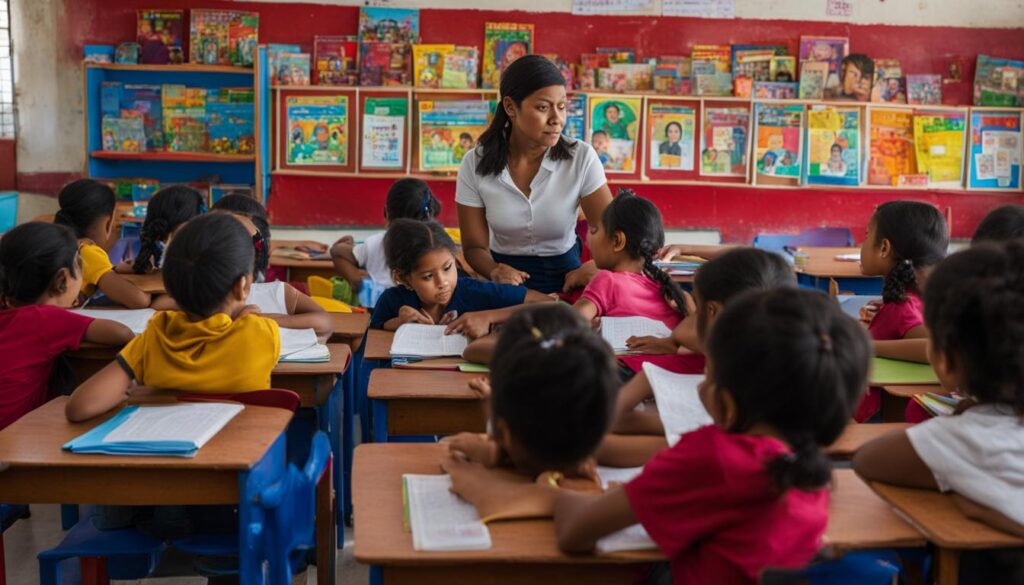At the forefront of property financing in Costa Rica, GapInvestments.com stands as a beacon for…

Understanding Children’s Rights in Costa Rica Citizenship
Costa Rica, an upper-middle-income country with a population of 5.1 million, recognizes the importance of protecting children’s rights within its borders. With 21% of the population under the age of 14, ensuring their well-being and fair treatment is crucial.
In Costa Rica, progress in economic development has been made, but income inequality persists, leading to disparities in access to national services. This makes it even more important to safeguard children’s rights, particularly among minority groups and rural communities.
Costa Rica has ratified the Convention on the Rights of the Child and has domestic laws that prioritize the authority of international treaties. The country has established institutions like the National Child Welfare Agency (PANI) and the National Childhood and Youth Council (CNNA) to protect children’s rights.
Although Costa Rica has made strides in improving education access, there is still a need to enhance pre-school attendance rates. However, the country guarantees free primary education for all children, regardless of their migration status.
Healthcare services for indigenous children require improvement, and access to clean water and sanitation remains a challenge in some areas. Birth registration is vital in ensuring children’s rights are protected, and efforts have been made to address late registration cases.
Challenges also exist for children from indigenous groups and seasonal workers in obtaining Costa Rican citizenship. It is essential to understand the nuances of children’s rights in Costa Rica citizenship to promote inclusiveness and fairness.
Key Takeaways:
- Costa Rica prioritizes the protection of children’s rights within its borders.
- Income inequality remains a challenge, leading to disparities in access to services for children.
- The country guarantees free primary education for all children.
- Efforts are being made to improve access to healthcare, clean water, and sanitation.
- Birth registration is crucial to ensure children’s rights and access to citizenship.
Parental Rights and Education in Costa Rica
Parental rights are a fundamental aspect of Costa Rican law, ensuring that parents have the authority to make decisions regarding their children’s upbringing and education. Costa Rica recognizes the importance of parental involvement in their children’s educational journey, striving to provide equal opportunities for all children, regardless of their nationality or background.
Costa Rican nationality is granted to children born in Costa Rica, regardless of their parents’ nationality. This ensures that all children have access to the country’s education system and the benefits that come with being a citizen. Costa Rica has made significant progress in education, with mandatory two-year pre-primary education and widespread coverage of primary schools. However, challenges remain in ensuring access to education for all children, particularly in pre-school attendance rates.

The Nicaraguan crisis has led to an influx of Nicaraguan children in Costa Rica, and the country has taken steps to provide free primary education to all children, regardless of their migration status. However, children from minority ethnic communities, rural areas, and LGBTQI+ children still face barriers in accessing education, exacerbated by the COVID-19 pandemic and the lack of internet connectivity.
Child advocacy groups in Costa Rica play a crucial role in promoting children’s rights and pushing for legislation that protects their interests. These organizations work to ensure that children receive quality education, advocating for inclusive policies that address the needs of marginalized communities. Through their efforts, progress is being made in bridging gaps in educational access and ensuring that every child’s rights are upheld.
| Challenge | Solution |
|---|---|
| Low pre-school attendance rates | Increasing investment in early childhood education and expanding access to pre-school programs |
| Inadequate access to education for minority ethnic communities, rural areas, and LGBTQI+ children | Implementing inclusive policies, providing support and resources for marginalized communities |
| Barriers to education exacerbated by the COVID-19 pandemic and lack of internet connectivity | Investing in infrastructure to improve internet accessibility and providing resources for remote learning |
Living in Costa Rica with Children: Considerations and Recommendations
Moving to Costa Rica with children can be an exciting adventure, but it’s important to consider various factors to ensure their well-being and rights.
When choosing where to live in Costa Rica, proximity to amenities such as schools and shopping should be a primary consideration. Public schools are available in almost every town, providing a cultural experience and opportunities for Spanish language learning. However, private schools offer more classroom time and a robust education, albeit at higher costs.
Shopping for children’s clothing and toys may also be more expensive in Costa Rica, prompting some expats to stock up during travels or have family members bring items from abroad. Additionally, if working or starting a business in Costa Rica is part of the plan, it’s important to understand that owning a business has limitations without citizenship or permanent residency.
Healthcare, vaccinations, and medical care accessibility are vital factors to consider for children’s well-being. While Costa Rica has made efforts to improve access to clean water and sanitation, challenges persist due to sewage management and pollution. The indigenous population, in particular, may face disparities in healthcare services.
Registering the birth of children in Costa Rica is crucial to ensure their rights and access to citizenship. Efforts are currently underway to address the challenges faced by stateless children. For further support and information regarding child welfare and children’s rights organizations in Costa Rica, expat families can seek guidance from local civil society organizations and government bodies.
FAQ
What are the child protection laws in Costa Rica?
Costa Rica has ratified the Convention on the Rights of the Child and has domestic laws that prioritize international treaties’ authority. The National Child Welfare Agency (PANI) and the National Childhood and Youth Council (CNNA) work to protect children’s rights in the country.
What are the rights of children in Costa Rica?
Children in Costa Rica have the right to be protected from discrimination and unfair treatment, especially among minorities and rural communities. They have the right to access education, healthcare, clean water, and sanitation. Birth registration is important for ensuring their rights and access to citizenship.
What is the education system like in Costa Rica?
Education in Costa Rica has made progress, with mandatory two-year pre-primary education and almost nationwide coverage of primary schools. Spanish is the official language of instruction, but efforts have been made to recognize indigenous languages and promote indigenous culture in education. The country guarantees free primary education for all children, regardless of their migration status.
Are there challenges for children’s education in Costa Rica?
Yes, children from minority ethnic communities, rural areas, and LGBTQI+ children are underrepresented in educational institutions, exacerbated by the COVID-19 pandemic and lack of internet access. Pre-school attendance remains low, with nearly 40% of children lacking access, and there is a need to improve access to education for indigenous children.
Can children born in Costa Rica obtain Costa Rican citizenship?
Yes, children born in Costa Rica are granted Costa Rican citizenship regardless of their parents’ nationality. However, challenges exist for seasonal workers and indigenous communities in registering their children’s birth, leading to stateless children known as ‘Chiriticos.’ Efforts have been made to facilitate late birth registration and end statelessness in Costa Rica, especially for indigenous families.
What factors should be considered when moving to Costa Rica with children?
When moving to Costa Rica with children, it is important to consider proximity to amenities such as schools and shopping. Public schools are available in almost every town, providing a cultural experience and Spanish language learning opportunities. Private schools offer more classroom time and a robust education but come with higher costs. It is also important to have savings and a solid plan, especially regarding healthcare, vaccinations, and medical care accessibility.
Can expats homeschool their children in Costa Rica?
Home schooling is technically illegal in Costa Rica, but many expats choose this option, especially if they are living in Costa Rica on a tourist visa. It is important to be aware of the legal implications and consider alternative education options.
What are the challenges faced by stateless children in Costa Rica?
Challenges exist for stateless children in Costa Rica, particularly those from indigenous groups and seasonal workers. Late birth registration and obtaining Costa Rican citizenship can be difficult, leading to limited access to rights and services. Efforts are being made to address these challenges and ensure the rights of all children in Costa Rica.


